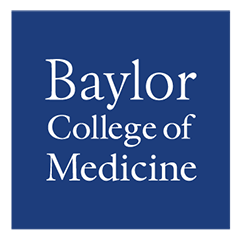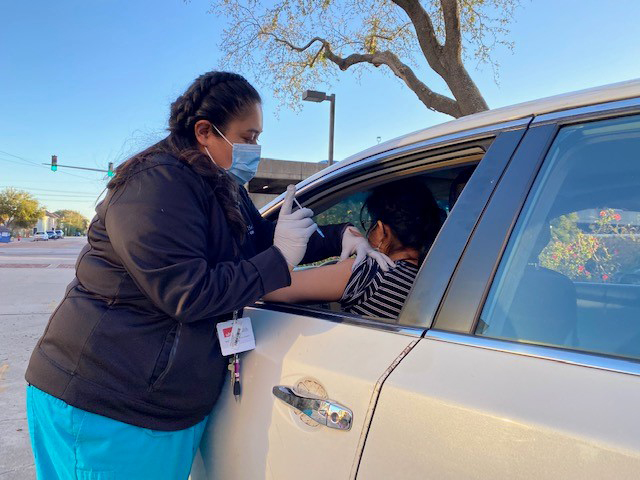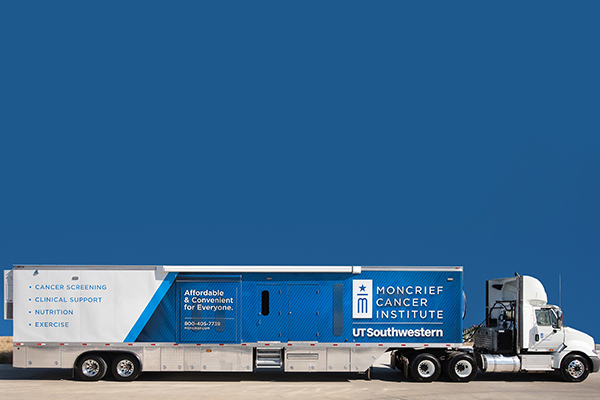FY2020 Highlights
2020 Annual Report

Proposition 6 Passes, Reauthorizing CPRIT for the Next Decade
The 86th Texas Legislature in 2019 committed to protecting and leveraging the state’s unprecedented investment in innovative cancer research and prevention efforts. In a unanimous Senate vote and near-unanimous House vote, lawmakers authorized a statewide election to dedicate an additional $3 billion to drive Texas’ momentum in the fight against cancer into the next decade.
On November 5, 2019, Texans responded by overwhelmingly approving Proposition 6. CPRIT is now a $6 billion, 20-year initiative – the largest state cancer research and prevention investment in the history of the United States and the second largest cancer research and prevention program in the world.
CPRIT Grant Awards and Notable Firsts in Fiscal Year 2020
Despite the challenges posed by the COVID-19 pandemic for grant applicants and CPRIT’s peer review process, the Oversight Committee reviewed and approved a full slate of academic research, product development research, and prevention grant awards in fiscal year 2020. The 134 grants awarded to 31 institutions this year adds to CPRIT’s impressive portfolio of the most innovative ideas in cancer research and prevention. Fiscal year 2020 was also a year of impressive “firsts” for several CPRIT grantee institutions as CPRIT continues to extend cutting-edge research and proven prevention strategies across the state.
$254 million in Grant Funds Awarded and 134 Grants Approved
31 Organizations Receiving Grants
Notable Firsts in FY 2020

Texas Tech University Health Sciences Center Amarillo
campus receives its first Core Facility Support Award



CPRIT awards inaugural Early Clinical Investigator Awards
to clinical faculty at Baylor College of Medicine, The University of Texas M.D. Anderson Cancer Center, and The University of Texas Southwestern Medical Center

Texas A&M Corpus Christi
receives its first CPRIT grant, a High Impact High Risk Research Award

Texas Tech University School of Veterinary Medicine
recruits its first CPRIT Scholar Klementina Fon Tacer, DVM

Texas A&M Engineering Experiment Station
receives its first CPRIT Scholar Award
Research Findings and Grantee Highlights for Fiscal Year 2020
CPRIT’s $2.64 billion investment in 1,576 of the best ideas in cancer research, product development, and prevention has enhanced Texas’ role in the global fight against cancer. A snapshot of some notable research findings reported in fiscal year 2020, as well as other important milestones, awards, prevention outreach, partnerships and financing events are shown below. Click on each icon to see all the information reported for the fiscal year.
View All
View All
View All
View All
View All
View All
CPRIT’s Operational Response
Following Governor Abbott’s State of Disaster declaration in March due to the COVID-19 pandemic, CPRIT responded with several operational changes for the remainder of fiscal year 2020 to protect staff, preserve peer review activities, and mitigate the impact on CPRIT-funded grant projects. CPRIT grantees experienced effects of the COVID-19 pandemic acutely, from cancelled conferences to the temporary shutdown of their facilities that stopped or limited work on grant projects. Following the lead of the National Institutes of Health, CPRIT quickly issued guidance for grantees regarding report deadlines, financial issues, and other COVID-19 related challenges.
CPRIT transitioned to a remote work policy for the agency and restricted staff travel. Starting with its May 20, 2020 meeting the Oversight Committee convenes its quarterly meetings using virtual meeting technology. The public continues to watch the meetings and provide comment remotely. After initially postponing all planned onsite grantee monitoring reviews, CPRIT’s compliance program revised its review protocols and resumed monitoring reviews in September using virtual meeting technology. These policies will continue until a vaccine is widely available.
CPRIT holds in-person peer review meetings for all programs in Dallas twice each year. To avoid delaying the review of pending grant applications indefinitely, CPRIT pivoted to videoconference meetings in April and continues to conduct all peer review meetings using virtual meeting technology. Travel and meeting restrictions also necessitated canceling CPRIT’s 2020 Innovations conference originally scheduled in July. CPRIT will re-assess holding in-person peer review meetings and rescheduling the conference when large group gatherings are safe.
CPRIT issued guidance in April allowing grantees to pay otherwise eligible salary and benefits for grant personnel unable to work or working at a reduced level during the March 1 – May 31 fiscal quarter. CPRIT also reimbursed grantees’ pre-paid travel and conference registration expenses for cancelled conferences. Some grantees used grant funds to buy laptops to work remotely on CPRIT-funded projects. Grantees providing direct patient care (e.g. cancer screenings, clinical trials) may pay for personal protective equipment and COVID-19 tests with grant funds. CPRIT reports these COVID-related grantee expenditures to the Governor and Legislative Budget Board; the expenses totaled $3.33 million for fiscal year 2020.
COVID-19’s Enduring Impact
on Cancer Patients
The pandemic focused the world’s attention on the importance of screenings, vaccinations, and preventative health measures. Unfortunately, it also caused institutions across the country, including many CPRIT grantees, to pause clinical trial enrollment, cancer screenings, vaccinations, and frontline education efforts. Routine screening is critical to the early diagnosis of various cancers. It increases the likelihood of surviving cancer and reduces the overall cost of cancer treatment. CPRIT grantees are minimizing the effect of the gap in cancer screenings and trial enrollment using innovative strategies to engage and educate patients.
2/3 of Americans delayed or skipped cancer screenings during pandemic
Source: American Society of Clinical Oncologists 4th Annual National Cancer Opinion Survey
10,000 more deaths from breast and colorectal cancer over next 10 years due to delayed diagnoses
Source: National Cancer Institute model
60% decrease in CPRIT-funded prevention services March 1 – August 31, 2020
Compared to September 1, 2019 – February 29, 2020
36,000
delayed
breast cancer diagnoses
Between March 1 - June 5, 2020
Source: IQVIA Institute for Human Data Science

Continuing a Clinical Trial During COVID-19
Dr. Abbey Berenson, Director of The University of Texas Medical Branch at Galveston Center for Interdisciplinary Research in Women’s Health, was conducting an active CPRIT-supported clinical trial when UTMB paused enrollment for all clinical trials on March 19, 2020. Most research labs also closed in response to Galveston County’s “stay at home” order. Her randomized controlled clinical trial, funded by a $1.5 million Individual Investigator Research Award for Prevention and Early Detection, compares the effectiveness of two doses vs. three doses of the HPV vaccine in older teenagers and young adults (RP190022 ).
It was critical to the study’s outcome to continue time-sensitive follow-up patient visits, vaccinations, and blood draws during the shutdown. Dr. Berenson developed a continuation plan, which UTMB approved, that included patient visits in two designated clinics and curbside vaccinations to minimize exposure. As a result, nearly 300 study visits took place between March 2 and September 30. When UTMB allowed researchers to resume enrolling new participants on May 29, Dr. Berenson’s study enrolled 87 more trial participants through September 30.
Dr. Berenson anticipates that the information learned from the study may simplify the standard three dose HPV vaccine schedule, which would increase the likelihood of completing the series and reduce the number of people who will develop HPV-related cancers

Providing Screening Services in Rural and Underserved Counties During COVID-19
COVID-19 required cancer prevention screening providers like the CPRIT-funded Breast Screening & Patient Navigation (BSPAN) project to quickly pivot from traditional outreach channels and standard screening visits to reach underserved Texans throughout the state. The BSPAN project, directed by Dr. Simon Lee, Program Co-Leader for Population Sciences & Cancer Control research at The University of Texas Southwestern Medical Center (PP180018), has provided comprehensive mammography and follow-up services in 35 rural and underserved counties across North Texas for several years.
Rural Texans are typically under- and uninsured, older, and lower income than their urban counterparts. This critically underserved population has limited access to routine preventive care. Demand for preventive breast cancer screenings already exceeded access and provider capacity in rural and underserved regions before COVID-19 shut down most screenings from mid-March through May.
BSPAN resumed screenings on June 1 with heightened safety precautions for patients and providers, including longer appointment times, required masking, full personal protective equipment for staff, cleaning/sanitization between appointments, and visitor restrictions. Because large in-person public events are not an option, the BSPAN outreach team now focuses on mailings and virtual and digital methods to promote the screenings.
BSPAN’s new safety protocols and outreach efforts are working. The BSPAN screenings, both on the mobile mammography bus and in-office, are now at or near capacity. Importantly, BSPAN provided screening mammograms for 181 women who had not received prior screening
CPRIT Research Supporting COVID-19 Discoveries
CPRIT’s decade-long investment in Texas’ research prowess not only pays dividends for innovative efforts to prevent, treat, and cure cancers but also adds to the overall body of scientific knowledge. CPRIT-funded research and technology played a pivotal role in the rapid development of COVID vaccines.
Researchers led by Dr. Jason McLellan, an associate professor in the Department of Molecular Biosciences at The University of Texas at Austin, used the CPRIT-funded cryogenic electron microscope (RR160023) housed in UT’s new Sauer Laboratory for Structural Biology to make an atomic scale 3-D model of the virus’ spike protein that the journal Science published in March.
Dr. McLellan is not a CPRIT grantee, but he credits access to one of the best electron microscopes in the world for his team being first to create this crucial map. Many drug companies, including Pfizer and Moderna, used the UT scientists’ discovery to develop vaccines.
The American Association for the Advancement of Science recognized Dr. McLellan and Daniel Wrapp, a graduate student fellow, noting that their work “demonstrate[s] how scientific advances resulting from foundational research can help respond to national and global challenges."
Texas A&M University researchers led by Texas A&M College of Medicine’s Dr. Yubin Zhou and CPRIT Scholar Dr. Yun Nancy Huang (RR140053), of the Texas A&M Institute of Biosciences and Technology, developed a genetically encoded caffeine-operated synthetic module, or “COSMO.” These new antibody-like molecules allow scientists to control biological processes like cancer and infectious diseases using caffeine and its metabolites, such as theobromine. Their discovery is published in the journal Advanced Science.
Dr. Guolin Ma, an assistant research professor working with Dr. Zhou to supervise the study, explained, “The COSMO system is amazingly powerful since it enables us to control calcium flux into cells and efficiently induce cancer cell death within seconds or minutes.” Combining the COSMO with the nanobody could also potentially neutralize SARS-CoV-2, the virus that causes COVID-19.
